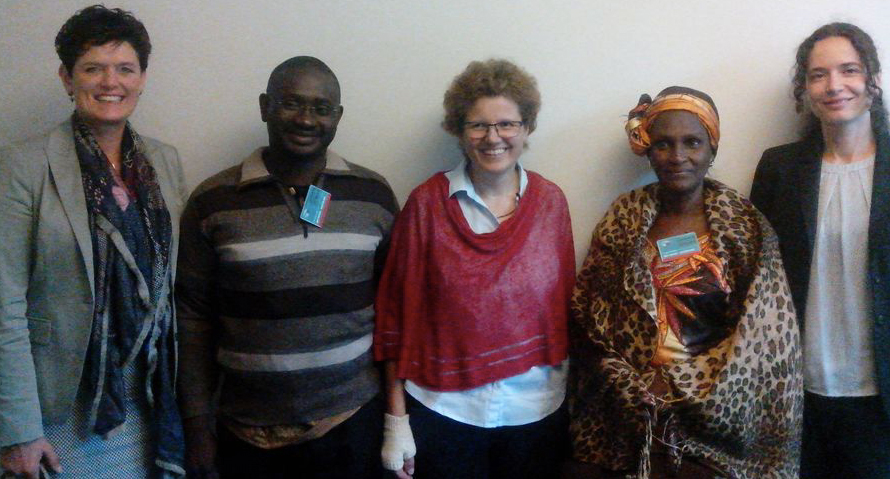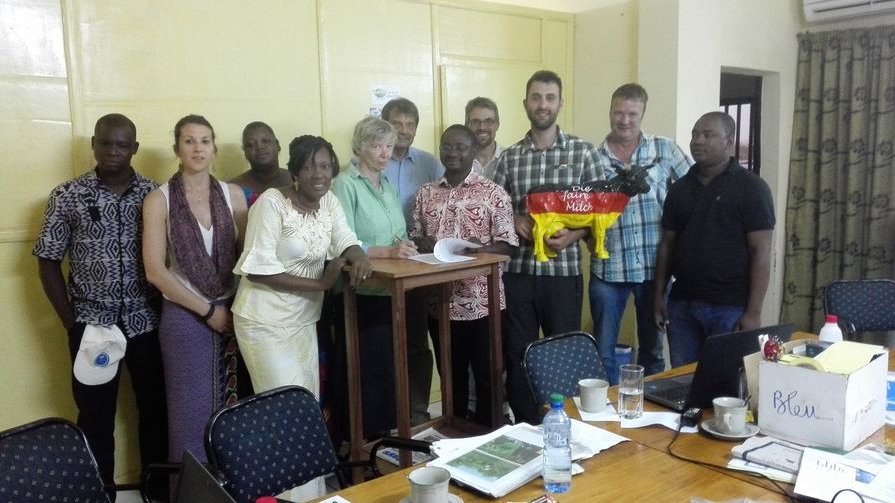
If the EU is unable to lower milk production to an appropriate volume within its own borders, European producers will not be the only ones affected by the resulting rock-bottom prices, the European Milk Board has warned.
West African milk producers arrived in Brussels for two days to discuss a responsible dairy policy with the EU.
Through this visit, René Millogo and Mariam Diallo from the organisations PASMEP (platform to support dairy cattle herders in Burkina Faso) and UMPL/B (National Micro-dairies and Local Milk Producers Union of Burkina) were looking to gain further insight into the objectives of EU policy.
'Disastrous consequences'
They also wanted to share with EU policymakers their experiences of the 'disastrous consequences' of the current EU strategy on West African markets.
When the EU produces too much, the surplus often ends up in markets in developing countries at dumping prices.

René Millogo explains the problem by referring to the current milk prices in Burkina Faso: "The average shop price for a litre of locally-produced milk is 600 CFA (about 91 eurocents).
"In comparison, milk produced from imported milk powder costs only 225 CFA (34 cents).
"This puts the local production at risk and destroys opportunities for local pastoral communities to earn a living."
Mariam Diallo said: "We hope that our European counterparts will consider the information derived from our talks in future decisions about dairy policy.
"It is important for them to strongly advocate a sustained reduction in overproduction in the EU.
"African countries that can fulfil their own needs are better for Europe as well. If the local socio-economic situation is not favourable, immigrating to Europe or other continents will be the only option, especially for young people."
'Positive actions'
Romuald Schaber from producer association European Milk Board (EMB) and Kerstin Lanje from the German development aid organisation Misereor welcomed the African-European exchange.
"It is important for policymakers to speak with the people affected by their decisions, outside the EU as well," says Schaber.
"In this way, the human fate behind sterile figures becomes clear, people should be the main focus of policies.
"Our actions and decisions in the EU should be as positive as possible, or neutral at the very least, for developing countries – in no way should they have negative effects.
"Production in West Africa has potential, but it can only be fully exploited if external distortions are kept to a minimum and the market is not flooded with cheap EU products," says Kerstin Lanje, emphasising the importance of responsible policy-making in the EU.
'Overproduction'
Thanks to the regular contact between producers from Burkina Faso and the EU over the last few years, West African producers have also gained useful insight into the situation of their European colleagues.
"We can see that overproduction is destroying prices within the EU as well," says Millogo.
"Therefore, we are not only here to explain the effects of the EU overproduction policy in our countries.
"We also want to support our European colleagues by appealing to EU policymakers to set up crisis instruments that will bring the chronic overproduction in the EU under control.
"Without a doubt, European and African producers are bound by solidarity to the extent that their concerns are the same," Millago concludes.
